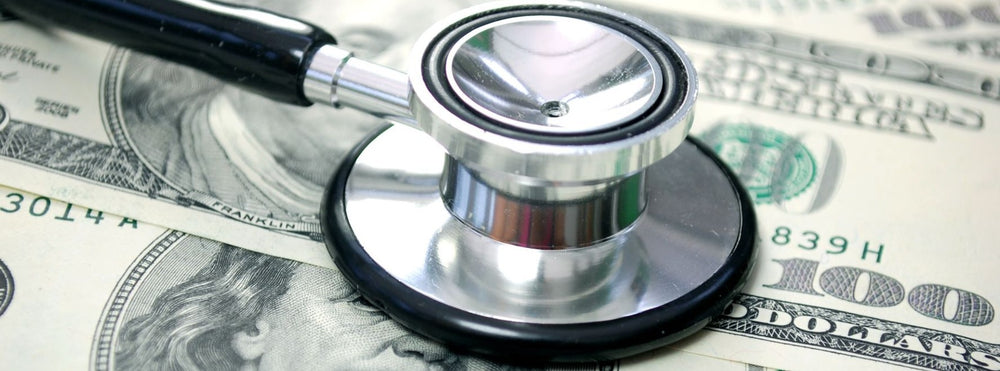Heart disease kills. It also costs billions of dollars.

Heart disease kills more Americans than any other health condition. In fact, heart disease and stroke account for ONE THIRD of all deaths in the United States!
The scale of human suffering due to cardiovascular disease is truly staggering.
But there is an additional price we pay for these diseases: Actual costs in dollars. We spend nearly $550 billion on heart disease and stroke per year, according to the AHA (this includes $237 billion attributed to lost job productivity). And that total is projected to grow to $1.1 trillion per year by 2035. To put $1.1 trillion in perspective, during the Great Recession of 2008, the government poured a once-in-a-lifetime, unprecedented $800 billion into the US economy to save it.
Meanwhile we are on track to throw a similar amount of money - year in and year out - at heart disease! You read that right, one predominantly preventable disease could actually bankrupt this country.
How did we get here?
Well, the most common heart surgery in the U.S. (coronary artery bypass graft, or CABG), is also one of the most expensive. It costs the health care system $6.5 billion every year.
And while [older] statin medications aren’t super expensive, newer therapies can cost upwards of $400 per month.
An aging population drives costs up even more, as more people are seeking surgery and medication. And as the obesity epidemic continues - and accelerates, now affecting nearly 20% of CHILDREN - we continue to see more diseases such as heart disease affecting younger and younger individuals. It’s not surprising that today, the average American has a 50% chance of experiencing some form of cardiovascular disease by the time they reach 45 years of age.
That all sounds so theoretical and massive and hard to see how it might affect us on a personal level. But it turns out even at the scale of one individual the economic effect could be eye-popping: If we didn’t have to treat cardiovascular disease, EVERY person in the country would get a $3,333 tax-free bonus - year in and year out - for their entire lifetimes.
The kicker, of course, is that much of this cost saving is attainable. The inexpensive way to fix all of this is to address the underlying cause of heart disease and change the food we eat - rather than spending all our resources treating the downstream effects of a poor diet with drugs and procedures.
An analysis published in the journal Current Cardiology Reports highlights what would happen if we did just that - paid for therapeutic foods not drugs. If people with high cholesterol were simply given Step One Foods, the US healthcare system could save $24 billion per year -- and that's just looking at the Medicare-insured population and assuming that only 1/3 of those folks would want to use food as medicine. The $24 billion figure is based on savings due to reduced use of medication, lower rates of heart attacks, and fewer hospital re-admissions. To put it in more approachable terms, the actuarial analysis tells us that every $1 spent on Step One Foods would save $2.32 in medical costs.
And if you're a Step One customer, you know that the intervention we're talking about is relatively tiny - it's just eating slightly differently. That minor dietary shift could save our nation $24 billion per year!
Which is why we are working hard to get insurance companies to help cover the costs of our products. It’s an uphill climb – insurers are just coming around to the idea of using food as medicine. But someone has to be the disruptor.
Maybe it can be us.

Tested & Proven Results.
- Cardiologist formulated
- Supported by over 500 publications
- Clinically-proven, in a double-blind randomized trial with Mayo Clinic and The University of Manitoba
80% of participants lowered their cholesterol in just 30 days. With just two servings per day, Step One Foods offers a proven-effective way to naturally lower LDL (bad) cholesterol.
Get heart health tips and articles like this, delivered right to your email.
New articles every week.
You may also like...

Insulin Resistance, Prediabetes and Type 2 Diabetes. Part 4: Un-Doing It.

You don’t need to avoid foods with cholesterol…except for these



